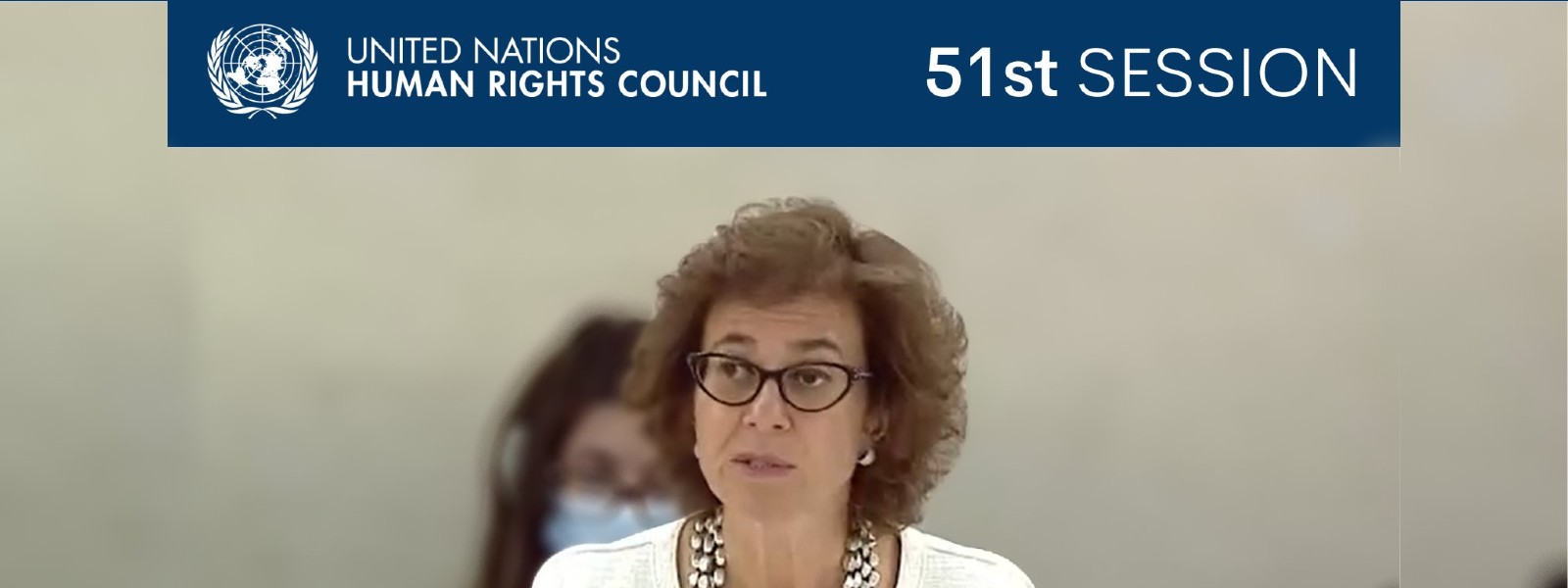Accountability remains the “fundamental gap” in Sri Lanka’s attempts to deal with the past, a senior U.N. official has said while warning that “as long as impunity prevails, Sri Lanka will achieve neither genuine reconciliation nor sustainable peace.”
Referring to the Sri Lankan government’s plans to set up a Truth Commission, to probe allegations of war crimes and grave human rights violations during the country’s civil war, U.N. Deputy High Commissioner for Human Rights Nada Al-Nashif noted that Sri Lanka has “witnessed too many ad hoc commissions” in the past that failed to ensure accountability.
“What is needed is a coherent plan that connects the different elements of truth, redress, memorialisation, accountability and creates the right enabling environment for a successful and sustainable transitional justice process,” she said, in an oral update to the U.N. Human Rights Council in Geneva on Wednesday.
While it is fundamentally the Sri Lankan authorities’ responsibility to directly acknowledge past violations and undertake credible investigations and prosecutions the international community can – and should – play complementary roles in the process until the “accountability deficit” remains, Ms. Al-Nashif said, amid known resistance within Sri Lanka’s Sinhala-majority to any international participation.
Further, pointing to recent arrests of a stand-up comedian and a Tamil legislator, the U.N. official said the past months witnessed “the old reflex of using draconian laws to curtail opposition and control civic space, with a heavy-handed approach to protests far too often”.
While “encouraging” President Ranil Wickremesinghe’s dialogue with Tamil political parties, and “welcoming” his promise to stop land acquisition for archaeological, forestry or security purposes, the U.N. official underscored the need for new laws, policies and practices that will “make good on these promises and bring about tangible changes”.
Commenting on the island’s persisting economic crisis, the Deputy Chief of Human Rights observed that it continues to severely impact the “rights and well-being of many Sri Lankans”. Terming the International Monetary Fund’s $ 2.9 billion-support an “important first step”, she called for “robust safety nets and social protection measures”, in order to ensure that “the burden of reforms does not further compound inequalities.”
Referring to last year’s historic people’s uprising [Janatha Aragalaya] in the island nation, that ousted former President Gotabaya Rajapaksa, Ms. Al-Nashif noted that the “full potential for the historic transformation that would address long-standing challenges has yet to be realised.”


